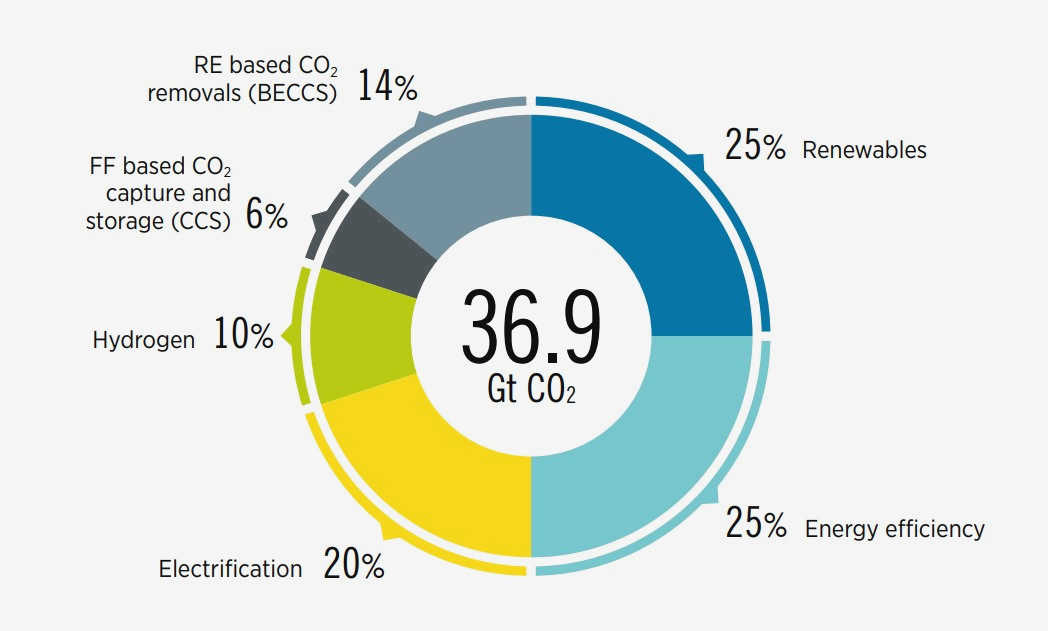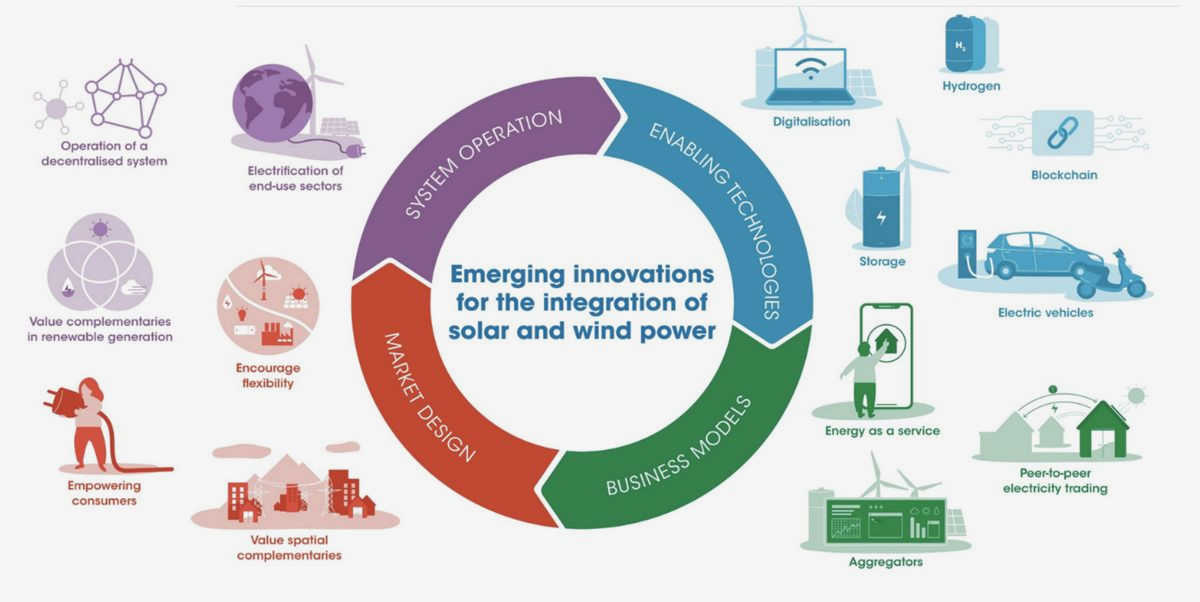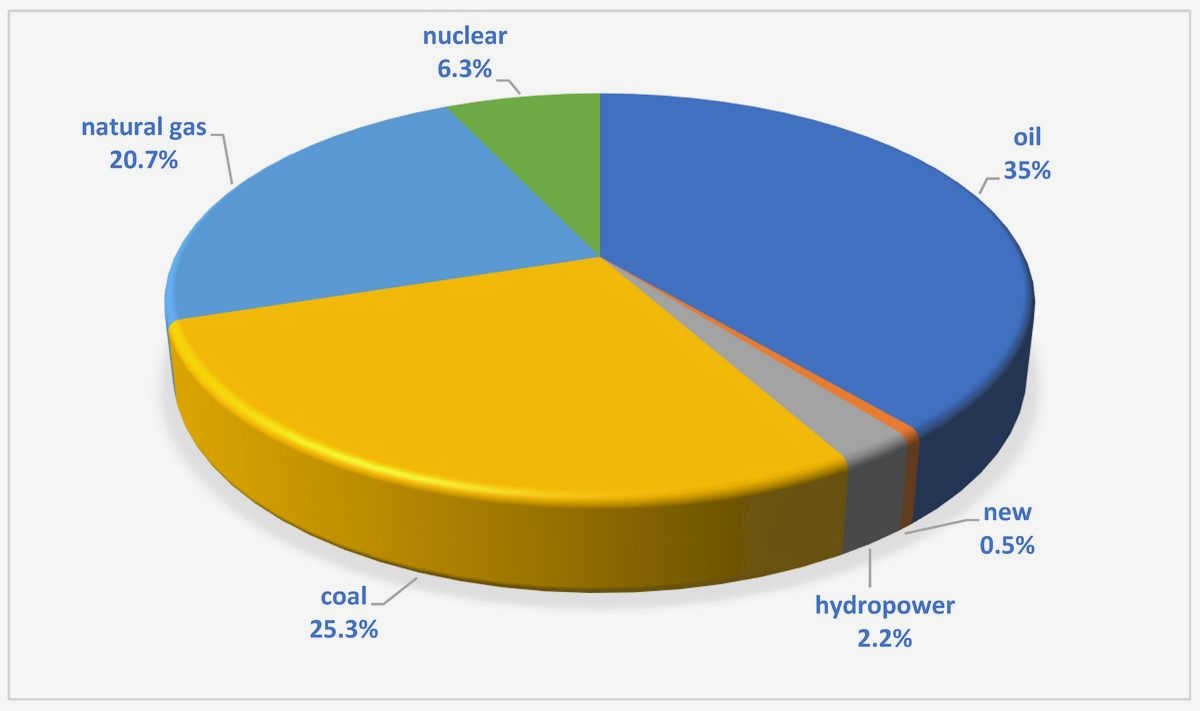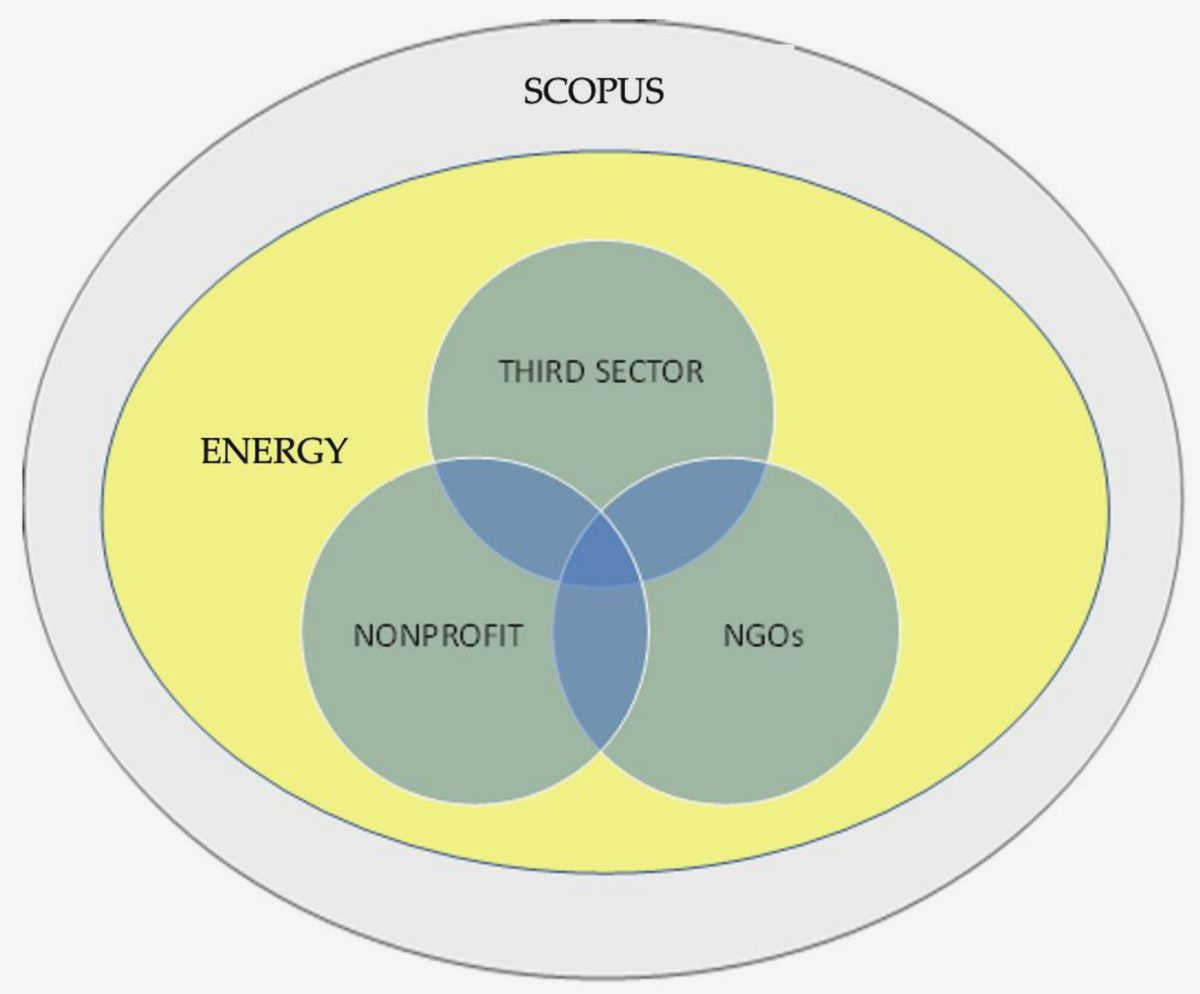The world is facing an urgent need to transition from fossil fuels to renewable energy sources in order to combat climate change and ensure a sustainable future for our planet. While governments and businesses play a crucial role in driving this transition, civil society also has a vital part to play. Civil society refers to the collective actions and organizations of citizens that are independent of governments and private businesses.
Civil society has the power to educate, raise awareness, and mobilize communities to demand and adopt renewable energy solutions. Through grassroots movements, advocacy campaigns, and community engagement, civil society can effectively challenge the status quo and push for policies and regulations that prioritize renewable energy development.
One of the key strengths of civil society is its ability to bridge the gap between policymakers, businesses, and the general public. By working closely with local communities, civil society organizations can help to ensure that the transition to renewable energy is inclusive and benefits all segments of society. This can include working with marginalized communities to ensure they have access to clean energy technologies and training programs, as well as advocating for policies that promote social and economic equity in the renewable energy sector.
Furthermore, civil society can act as a watchdog, holding governments and businesses accountable for their commitments to renewable energy. By monitoring the implementation of renewable energy projects and advocating for transparency and accountability, civil society can help to ensure that the transition to renewable energy is not only happening, but happening in a way that is sustainable and just.
Driving the Transition to Renewable Energy Sources
The Role of Civil Society
Civil society plays a crucial role in driving the transition to renewable energy sources. As a collective force, civil society organizations have the power to advocate for policy changes, promote environmentally-friendly practices, and mobilize communities to support renewable energy initiatives.
Advocacy and Policy Influence
Civil society organizations have the ability to influence policy decisions and advocate for renewable energy sources at both the local and national levels. They can conduct research, produce reports, and engage with policymakers to highlight the benefits of renewable energy and push for relevant legislation and regulations.
Community Engagement
Engaging communities is an essential part of driving the transition to renewable energy sources. Civil society organizations can organize awareness campaigns, educational programs, and community initiatives to raise public awareness about the importance of renewable energy and provide information on how individuals can actively participate in the shift towards cleaner energy options.
Collaboration and Partnerships
Collaboration and partnerships with other stakeholders, including businesses, local governments, and research institutions, are vital in accelerating the transition to renewable energy. Civil society organizations can work together with these entities to develop innovative projects, share resources and expertise, and create sustainable solutions that benefit the environment and society as a whole.
International Cooperation
Driving the transition to renewable energy sources requires international cooperation and collaboration. Civil society organizations can contribute to global efforts by participating in international conferences, forums, and initiatives focused on renewable energy. They can share knowledge, exchange best practices, and advocate for international agreements and targets that promote renewable energy adoption worldwide.
Highlighting the Benefits
Civil society organizations play a crucial role in highlighting the economic, social, and environmental benefits of transitioning to renewable energy. By showcasing success stories, highlighting job creation opportunities, and emphasizing the positive impact on climate change mitigation, these organizations can inspire individuals, businesses, and governments to actively support and invest in renewable energy solutions.
Civil Society: A Key Role in Advancing Renewable Energy
Civil society plays a crucial role in driving the transition to renewable energy sources. With their collective power and influence, civil society organizations can mobilize communities, raise awareness, and advocate for policies that promote renewable energy adoption.
One way civil society contributes to advancing renewable energy is through community engagement. Local organizations can organize workshops, public meetings, and educational campaigns to inform citizens about the benefits of renewable energy and how they can participate in the transition. By involving communities in decision-making processes and giving them a stake in renewable energy projects, civil society helps to build trust and support for sustainable energy initiatives.
Civil society organizations also play a key role in advocating for renewable energy policies at local, national, and international levels. Through their networks and partnerships, these organizations can push for the implementation of policies that promote the development and use of renewable energy sources, such as feed-in tariffs, tax incentives, and renewable portfolio standards. By lobbying governments, organizing protests, and using media platforms, civil society can exert pressure on decision-makers to prioritize renewable energy and phase out fossil fuels.
Moreover, civil society has the power to hold governments and corporations accountable for their environmental commitments. By monitoring and reporting on the progress of renewable energy projects, civil society organizations can highlight successes and shortcomings, ensuring that stakeholders remain committed to their renewable energy targets. Through transparency and public pressure, civil society can push for increased investment in renewable energy, improved regulations, and stricter enforcement of environmental standards.
In conclusion, civil society plays a crucial role in advancing renewable energy by mobilizing communities, advocating for policies, and holding stakeholders accountable. Their collective efforts contribute to the widespread adoption of renewable energy sources and the overall transition to a more sustainable and environmentally friendly energy system.
Engaging Communities to Support Renewable Energy Initiatives
Educating the community
One of the key ways to engage communities in supporting renewable energy initiatives is through education. Providing accurate and understandable information about the benefits of renewable energy sources can help dispel any misconceptions or fears that community members may have. This can be done through workshops, seminars, and educational materials that explain how renewable energy works and how it can contribute to a cleaner and more sustainable future.
Building partnerships
Another effective way to engage communities is by building partnerships with local organizations and stakeholders. By working together, renewable energy initiatives can benefit from the collective knowledge, resources, and networks of these community organizations. Collaborating with environmental groups, local businesses, and educational institutions can help create a strong support network for renewable energy projects and increase their chances of success.
Empowering community members
Empowering community members to actively participate in renewable energy initiatives can also be a powerful way to engage them. This can be done through initiatives such as community-owned renewable energy projects, where community members have a direct stake in the development and management of renewable energy sources. Additionally, providing opportunities for community members to contribute their skills and expertise can help foster a sense of ownership and investment in these initiatives.
Highlighting economic benefits
One aspect that can resonate with communities is the economic benefits of renewable energy initiatives. By highlighting the potential for job creation, cost savings, and local economic development, communities can see the direct impact that supporting renewable energy can have on their own financial well-being. This can help generate support and enthusiasm for renewable energy initiatives, as it becomes clear that they can bring both environmental and economic benefits to the community.
Celebrating successes
Celebrating the successes and achievements of renewable energy initiatives can also help engage communities. By showcasing the positive outcomes and impacts of these projects, communities can see firsthand the tangible benefits that come with transitioning to renewable energy sources. This can be done through public events, media coverage, and community outreach efforts, which can help generate excitement and motivation to support further renewable energy initiatives.
In conclusion
Engaging communities to support renewable energy initiatives is crucial in driving the transition to a more sustainable future. Through education, building partnerships, empowering community members, highlighting economic benefits, and celebrating successes, communities can become active participants and supporters of renewable energy development. By working together, civil society can play a key role in mobilizing the necessary resources and support to achieve a cleaner and more renewable energy future.
Educating the Public on the Benefits of Renewable Energy
1. Importance of Public Education
Public education plays a crucial role in driving the transition to renewable energy sources. It is important for civil society to educate the public about the benefits of renewable energy in order to create awareness and support for this important cause.
2. Environmental Benefits
One of the key benefits of renewable energy is its positive impact on the environment. By harnessing energy from sources such as the sun, wind, and water, we can reduce the carbon emissions that contribute to climate change. Educating the public about this environmental benefit can help people understand the urgent need to transition to renewable energy to mitigate the effects of climate change.
3. Economic Benefits
In addition to its environmental benefits, renewable energy also offers significant economic advantages. By investing in renewable energy infrastructure, communities can create jobs and stimulate local economies. Educating the public about these economic benefits can help dispel the misconception that renewable energy is only a financial burden, and instead highlight the opportunities it provides for sustainable economic growth.
4. Energy Independence
Renewable energy sources offer the potential for greater energy independence. By relying less on fossil fuels and transitioning to renewable energy, communities and countries can reduce their dependence on imported energy sources. This energy independence can enhance national security and reduce vulnerability to fluctuating fossil fuel prices. Educating the public about the importance of energy independence can highlight the need to prioritize renewable energy as a long-term sustainable solution.
5. Health Benefits
Switching to renewable energy sources can also have positive health impacts. Unlike fossil fuels, which emit pollutants that can harm human health, renewable energy sources are clean and do not contribute to air pollution. Educating the public about these health benefits can help individuals understand how transitioning to renewable energy can improve air quality and reduce the incidence of respiratory diseases and other health conditions.
Conclusion
In conclusion, public education is essential for driving the transition to renewable energy sources. By educating the public about the environmental, economic, energy independence, and health benefits of renewable energy, civil society can create awareness and support for this vital cause. By working together, we can accelerate the adoption of renewable energy and create a more sustainable and resilient future.
Policy Advocacy: Driving Renewable Energy Legislation
Policy advocacy plays a crucial role in driving the development of renewable energy legislation. Civil society organizations and activists are at the forefront of advocating for policies that promote the transition to renewable energy sources. Through their advocacy efforts, they aim to influence decision-making processes, shape legislation, and create an enabling environment for the growth of renewable energy.
Understanding the importance of renewable energy: Advocacy groups work to raise awareness about the benefits of renewable energy and the need to transition away from fossil fuels. They educate the public and policymakers about the environmental, social, and economic advantages of renewable energy sources, such as reduced greenhouse gas emissions, job creation, and energy independence.
Promoting renewable energy policies: Advocacy organizations engage in lobbying and advocacy campaigns to push for the adoption and implementation of renewable energy policies at the local, national, and international levels. They work to influence lawmakers, policy experts, and industry leaders to prioritize and support policies that promote renewable energy generation, such as feed-in tariffs, renewable portfolio standards, and tax incentives.
Raising public support: Advocacy groups also play a crucial role in mobilizing public support for renewable energy legislation. They organize grassroots initiatives, public awareness campaigns, and public consultations to involve citizens in the decision-making process and to ensure that their voices are heard. By galvanizing public support, these organizations create political pressure and build momentum for the adoption of renewable energy policies.
Fostering collaboration: Advocacy groups often collaborate with other stakeholders, including academia, businesses, and governments, to drive renewable energy legislation. They participate in forums, conferences, and working groups to share ideas, expertise, and best practices. By fostering collaboration, these organizations facilitate the creation of comprehensive and effective renewable energy policies that address the unique challenges and opportunities of each region or country.
Monitoring and accountability: Civil society organizations also play an important role in monitoring the implementation of renewable energy legislation and holding governments and industry accountable for their commitments. They track progress, evaluate the effectiveness of policies, and advocate for any necessary adjustments or improvements. Through their monitoring and accountability efforts, these organizations ensure that renewable energy legislation is implemented in a transparent and responsible manner.
Overall, through their policy advocacy efforts, civil society organizations and activists are instrumental in driving renewable energy legislation. By raising awareness, promoting policies, mobilizing public support, fostering collaboration, and monitoring implementation, these organizations play a vital role in accelerating the transition to renewable energy sources.

Fostering Innovation and Investment in Renewable Energy
Rapid advancements in technology and increasing awareness of the importance of sustainability have created a growing demand for renewable energy sources. To meet this demand, it is crucial to foster innovation and investment in renewable energy.
Innovation: Encouraging and supporting research and development initiatives is essential for driving innovation in renewable energy. Governments, universities, and private institutions should allocate funds for research projects aimed at finding new and more efficient ways to harness renewable energy. Collaboration between different sectors, such as academia and industry, can facilitate the exchange of knowledge and ideas, leading to breakthrough innovations.
Investment: Adequate funding plays a critical role in the widespread adoption of renewable energy technologies. Governments can provide incentives for investors to channel their resources into renewable energy projects, such as tax breaks, grants, and subsidies. Financial institutions can also play a significant role by offering favorable loan terms and investment opportunities in the renewable energy sector.
Policy framework: A supportive policy framework is crucial for attracting investment and promoting innovation in renewable energy. Clear and stable regulations can give investors confidence in the market, while policies that prioritize the use of renewable energy can create a favorable environment for innovation. Governments should also consider implementing frameworks that promote the integration of renewable energy into existing infrastructure, such as smart grids and energy storage systems.

Sustainable funding models: Developing sustainable funding models is key to fostering innovation and investment in renewable energy. Public-private partnerships can combine government resources with private sector expertise and funding. Crowdfunding platforms and impact investing can also play a significant role in raising funds for renewable energy projects, especially at the community level.
Capacity building: Investing in education and training programs can help develop a skilled workforce capable of driving innovation in renewable energy. By providing training opportunities and promoting research and development collaborations, governments and organizations can ensure that the necessary skills and knowledge are available to support the growth of renewable energy.
Overall, fostering innovation and investment in renewable energy is essential for driving the transition towards a sustainable future. By promoting research, creating favorable policies, and implementing sustainable funding models, we can accelerate the development and adoption of renewable energy technologies.
Building Partnerships with Businesses for Renewable Energy Solutions
1. Collaborating for a Sustainable Future
In driving the transition to renewable energy sources, civil society organizations have recognized the importance of collaborating with businesses. By partnering with companies, these organizations can leverage their resources, expertise, and influence to promote and implement renewable energy solutions on a larger scale.
Businesses, on the other hand, have their own incentives for engaging in renewable energy projects. Embracing sustainable practices can enhance their corporate social responsibility image, attract environmentally conscious consumers, and reduce their operational costs in the long run.
2. Creating Win-Win Scenarios
Partnerships between civil society organizations and businesses can create win-win scenarios where both parties benefit from renewable energy solutions. Civil society organizations can provide businesses with access to their networks, knowledge, and advocacy efforts, while businesses can contribute financial resources, technological expertise, and market influence.
For example, civil society organizations can collaborate with businesses to develop and implement renewable energy projects, such as solar or wind farms. The organizations can provide guidance on the environmental and social impact assessments, community engagement, and policy advocacy, while businesses can invest in the infrastructure and operation of the projects.
3. Driving Innovation and Market Transformation
Through partnerships with businesses, civil society organizations can drive innovation in renewable energy technologies and market transformation. By working together, they can identify and support promising startups or research initiatives that focus on developing renewable energy solutions.

Furthermore, civil society organizations can advocate for supportive policies and regulations that incentivize the adoption of renewable energy. By engaging with businesses, these organizations can amplify their voice and influence policymakers to create a favorable environment for renewable energy investment and development.
4. Promoting Corporate Sustainability Commitments
Partnerships with businesses can also be instrumental in encouraging corporate sustainability commitments. Civil society organizations can collaborate with businesses to set renewable energy targets, monitor their progress, and hold them accountable for their actions.
Through transparency and reporting mechanisms, businesses can demonstrate their commitment to renewable energy and inspire others to follow suit. Civil society organizations can also work with businesses to develop renewable energy procurement strategies, which can include sourcing electricity from renewable sources or investing in renewable energy certificates.
5. Examples of Successful Partnerships
There are numerous examples of successful partnerships between civil society organizations and businesses for renewable energy solutions. For instance, Greenpeace collaborated with IKEA to promote wind energy projects in Poland, contributing to the country’s transition to renewable energy sources.
In another example, the World Wildlife Fund partnered with Google to support renewable energy projects, including wind and solar farms, through their Renewable Energy Buyers Alliance. This partnership aims to accelerate the shift to a clean energy future and create a more sustainable, low-carbon grid.
In conclusion, building partnerships with businesses is essential for driving the transition to renewable energy sources. Through collaboration, civil society organizations and businesses can leverage their respective strengths to implement renewable energy solutions, drive innovation, promote corporate sustainability commitments, and ultimately contribute to a more sustainable future.
Empowering Individuals to Embrace Renewable Energy
As the world continues to face the urgent challenge of transitioning to renewable energy sources, individuals have a crucial role to play in driving this transition. By embracing renewable energy in their everyday lives, individuals can contribute to reducing carbon emissions, combating climate change, and creating a more sustainable future.
Education and Awareness
Empowering individuals to embrace renewable energy starts with education and awareness. It is important to educate individuals about the benefits of renewable energy, such as its positive impact on the environment, health, and economy. By raising awareness about renewable energy technologies, such as solar panels, wind turbines, and geothermal systems, individuals can make informed choices and understand the long-term benefits of using renewable energy sources.
Access to Resources and Incentives
Another key aspect of empowering individuals is providing them with access to resources and incentives that make it easier for them to adopt renewable energy. This can include government programs and financial incentives, such as tax credits or subsidies, to make renewable energy technologies more affordable. Additionally, providing individuals with information about local renewable energy initiatives, such as community solar projects or energy cooperatives, can help them take advantage of collective efforts and resources.
Engagement and Collaboration
Empowering individuals to embrace renewable energy also involves fostering engagement and collaboration within communities. By organizing educational events, workshops, and forums, individuals can come together to learn, share experiences, and find solutions to common challenges. Encouraging community-driven renewable energy projects and initiatives can also create a sense of ownership and collective responsibility, leading to increased adoption of renewable energy sources.
Setting an Example
Finally, empowering individuals to embrace renewable energy involves setting an example. Individuals who already use renewable energy sources can inspire others through their actions and demonstrate the feasibility and benefits of renewable energy adoption. By sharing their experiences and promoting the use of renewable energy in their homes, workplaces, and communities, these individuals can motivate and encourage others to follow suit.
In conclusion, empowering individuals to embrace renewable energy is essential in driving the transition to sustainable and clean energy sources. Through education and awareness, access to resources and incentives, engagement and collaboration, and setting an example, individuals can become ambassadors for renewable energy and make a significant impact on creating a more sustainable future for all.
Ensuring Access to Renewable Energy in Underserved Communities
Access to renewable energy is crucial for creating a sustainable future, but many underserved communities still lack reliable and affordable sources of clean energy. This lack of access not only perpetuates energy poverty, but also contributes to environmental and health disparities.
The Need for Equity
It is essential to ensure that all communities, regardless of their socioeconomic status or geographic location, have equal access to renewable energy resources. By addressing energy inequality, we can bridge the gap between the haves and have-nots, and foster a more inclusive and just society.

Improving Infrastructure
One way to ensure access to renewable energy in underserved communities is by investing in infrastructure improvements. This can include building and expanding renewable energy facilities, improving the efficiency of existing energy grids, and implementing smart technologies for energy management.
Community Engagement and Empowerment
Community participation and empowerment are crucial in driving the transition to renewable energy. Underserved communities should be included in the decision-making processes regarding the development and implementation of renewable energy projects. By involving community members, their unique needs and concerns can be addressed, and solutions can be tailored to meet their specific circumstances.
Education and outreach programs can also play a significant role in empowering underserved communities. By providing information and resources, individuals can become advocates for renewable energy and actively participate in the transition towards cleaner and more sustainable energy sources.
Financial Support and Incentives
Access to financing is often a barrier for underserved communities to adopt renewable energy technologies. Governments, philanthropic organizations, and private sectors can provide financial support, grants, and incentives to make renewable energy more accessible and affordable for these communities.
Collaboration and Partnerships
No single entity can tackle the challenge of ensuring access to renewable energy in underserved communities alone. Collaboration and partnerships between governments, NGOs, community-based organizations, and renewable energy companies are essential to create innovative and sustainable solutions.
| Community Solar Programs: | These programs allow community members to jointly invest in solar energy projects and receive energy credits or reduced electricity bills. |
| Microgrid Systems: | Implementing localized energy grids that can operate independently from the main grid, ensuring a reliable energy source in case of emergencies. |
| Workforce Development Programs: | Providing training and job opportunities in the renewable energy sector to empower underserved communities and enhance economic opportunities. |
In conclusion, ensuring access to renewable energy in underserved communities is not only crucial for achieving a sustainable future but also for promoting social equity. By addressing infrastructure, community engagement, financial support, and fostering collaborations, we can create a more inclusive and resilient energy system.
Addressing Challenges and Overcoming Barriers to Renewable Energy Adoption
1. Raising Awareness and Education
One of the key challenges to the adoption of renewable energy sources is the lack of awareness and understanding among the general public. Many people are not fully aware of the benefits of renewable energy or the potential risks associated with relying on fossil fuels. It is crucial to educate the public about the importance of transitioning to renewable energy and the positive impact it can have on the environment and economy.
2. Government Policies and Incentives
Government policies and incentives play a pivotal role in driving the adoption of renewable energy sources. Policymakers need to establish clear and supportive regulations that encourage and facilitate the development of renewable energy projects. These policies should include financial incentives, such as tax credits or subsidies, to reduce the cost barrier for individuals and businesses to invest in renewable energy technologies.
3. Building Infrastructure and Grid Integration
One of the challenges in transitioning to renewable energy is the need to build appropriate infrastructure and integrate renewable energy sources into existing power grids. This requires significant investments in upgrading transmission and distribution systems, as well as building new infrastructure such as wind farms or solar power plants. Governments and energy companies need to work together to develop and implement strategies that ensure a reliable and efficient integration of renewable energy into the grid.
4. Promoting Research and Development
Continued research and development in renewable energy technologies are essential to overcome the current barriers and improve the efficiency and cost-effectiveness of renewable energy systems. Governments, universities, and private sector companies should invest in research and development programs to advance renewable energy technologies, such as improved solar panels or better energy storage systems. This will ultimately drive down costs and make renewable energy more accessible and widely adopted.
5. Addressing Public Concerns and Opposition
Public concerns and opposition to renewable energy projects can pose a significant barrier to their adoption. It is important to address these concerns and provide clear information about the benefits and safety of renewable energy sources. Engaging with local communities and stakeholders, conducting transparent environmental impact assessments, and addressing any potential health or environmental risks can help mitigate opposition and build support for renewable energy projects.
Conclusion
Addressing the challenges and overcoming the barriers to renewable energy adoption requires a coordinated effort from all stakeholders, including governments, civil society organizations, and the private sector. By raising awareness, implementing supportive policies, investing in infrastructure, promoting research and development, and addressing public concerns, we can drive the transition to renewable energy sources and create a more sustainable and clean energy future.

Measuring the Impact of Civil Society’s Role in Renewable Energy Transition
The transition to renewable energy sources is a complex and multifaceted process that requires collaboration and involvement from various stakeholders, including civil society. Civil society plays a crucial role in promoting and driving the transition towards renewable energy sources. However, measuring the impact of civil society’s role in this transition can be challenging.
Advocacy and awareness raising: Civil society organizations are often at the forefront of advocacy and awareness raising efforts for renewable energy. They engage in public campaigns to raise awareness about the benefits of renewable energy sources and the need for transitioning away from fossil fuels. Measuring the impact of their advocacy and awareness raising activities can be done through surveys, tracking media coverage, and monitoring public sentiment towards renewable energy.
Policy and regulatory influence: Civil society organizations also play a vital role in shaping and influencing policies and regulations related to renewable energy. They engage in policy advocacy, organizing meetings and consultations with policymakers, and providing expert input and analysis. Measuring their impact in this area can be done by tracking policy changes, assessing the adoption of renewable energy goals and targets, and evaluating the extent to which civil society input has been incorporated into policy decisions.
Community engagement and capacity building: Civil society organizations often work directly with communities to promote renewable energy adoption and build local capacity. They provide information, training, and support to individuals and communities interested in transitioning to renewable energy sources. Measuring the impact of their community engagement and capacity building efforts can be done through monitoring the number of households or businesses that have adopted renewable energy, tracking energy savings or carbon emission reductions, and conducting surveys to assess changes in knowledge and attitudes towards renewable energy.
Partnerships and collaboration: Civil society organizations also play a crucial role in fostering partnerships and collaboration between different stakeholders in the renewable energy sector. They facilitate dialogue and cooperation between government institutions, private sector actors, research institutions, and other civil society organizations. Measuring the impact of their partnerships and collaboration efforts can be done through assessing the number and quality of partnerships established, evaluating the outcomes of collaborative initiatives, and tracking the replication and scaling-up of successful models and practices.
In conclusion, measuring the impact of civil society‘s role in the transition to renewable energy sources requires a comprehensive and multidimensional approach. It involves evaluating the effectiveness of advocacy and awareness raising efforts, assessing policy and regulatory changes influenced by civil society, monitoring the progress of community engagement and capacity building activities, and evaluating the outcomes of partnerships and collaboration. By measuring and analyzing these different aspects, we can gain a better understanding of the impact of civil society‘s role and identify areas for improvement and further action.





